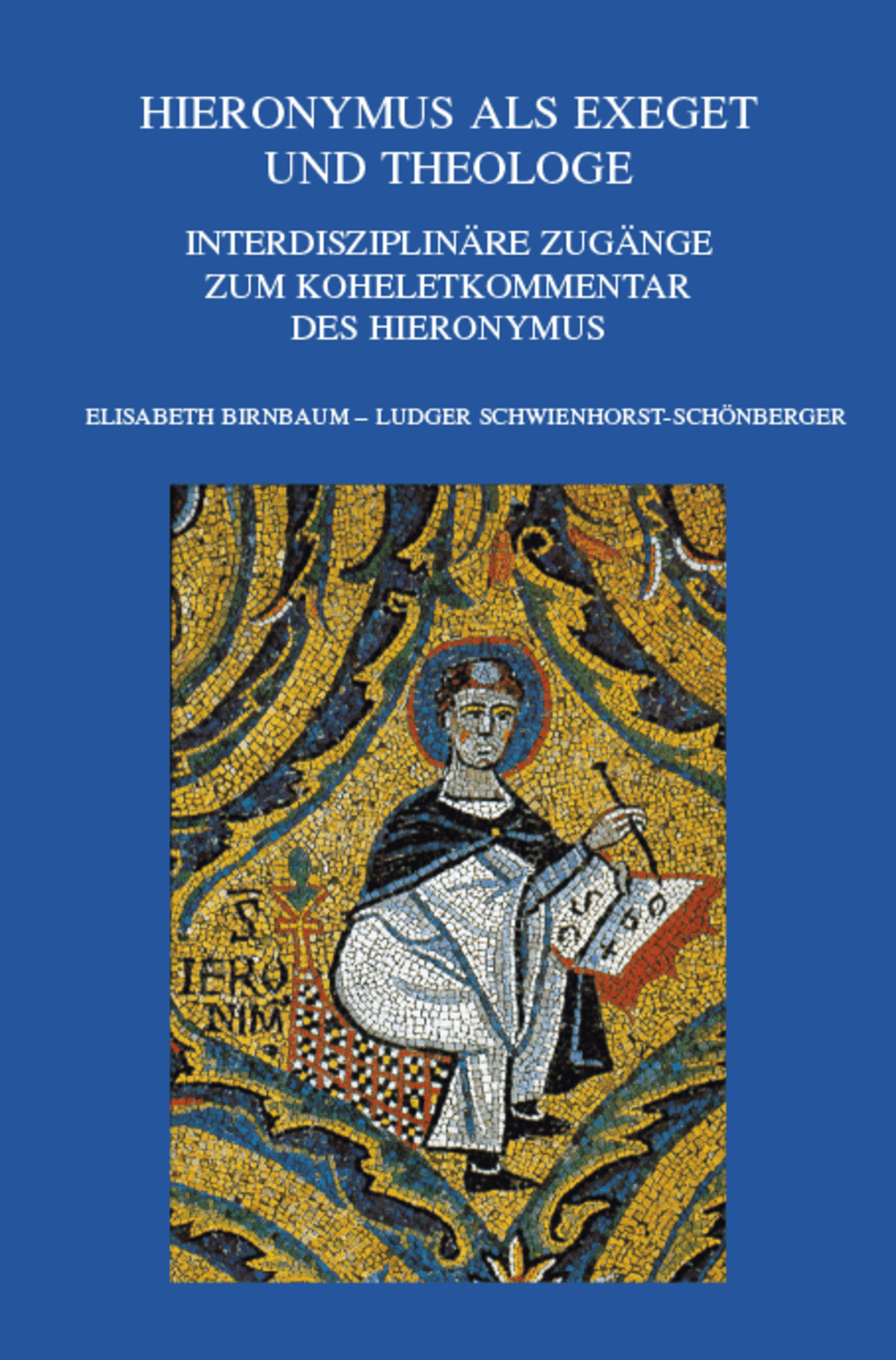ISBN 978-90-429-3067-4
Leuven: Peeters Publishers 2014
Beitrag von Thomas Prügl:
Zum Nachleben des Hieronymianischen 'In Ecclesiasten'. : Die Auslegung des Buches Kohelet im Mittelalter, S. 245-271
ISBN 978-90-429-3067-4
Leuven: Peeters Publishers 2014
Beitrag von Thomas Prügl:
Zum Nachleben des Hieronymianischen 'In Ecclesiasten'. : Die Auslegung des Buches Kohelet im Mittelalter, S. 245-271
